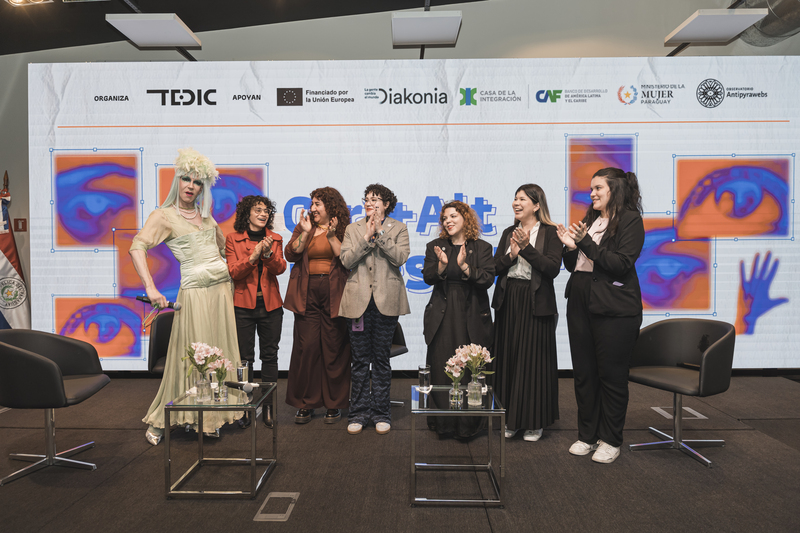
On Monday, September 8, in the event hall of CAF’s Casa de la Integración, we held the Crtl+ Alt + Resist event, where we launched research, articles, and collective proposals on trends in digital rights in Paraguay, during the years 2024 and 2025, and technological phenomena such as mass surveillance, disinformation, and personal data protection, among others.
With more than 100 people in attendance, including authorities from the Ministry of Women, social organizations, students, collaborators, and authors of the articles, we presented a series of digital and printed materials addressing contemporary challenges surrounding technology, sociopolitical phenomena, and trends in digital rights in Paraguay.
As host of the event, we were joined by the cyborg feminist drag queen Mentagreen, who welcomed our guests. Mentagreen added a touch of style and humor to our presentations. From the TEDIC team, the new gender and diversity project coordinator, Jazmín Ruíz Díaz, was in charge of presenting and moderating the talks.
The first presentation of the evening was given by Mariela Cuevas, executive manager of TEDIC, who presented the results of the Anti Pyrawebs 2024 Observatory, which shows trends in digital rights in Paraguay. Among the topics highlighted were: the use of artificial intelligence, the personal data protection law, cybersecurity bills, etc
Following Mariela, we gave the floor to Guillermo Ramírez Lovera, author of the paper Sculptors of Reality: The Structural Role of Advertising Agencies in the Disinformation Ecosystem. Ramírez, a researcher in the field of advertising, addresses the impact and responsibility that these companies have on the integrity of information in digital environments.
“Advertising agencies don’t just sell products, they also shape the information ecosystem. What the industry decides to say or not say directly influences how societies perceive and understand reality,” Ramírez shared about his work. He also presented educational material that serves as a toolbox for creatives in the sector.
Digital rights: challenges and potentialities
Later in the evening, the panelists included Hugo Mendieta and Antonia Bogado, authors of the research paper Drones: regulation and use in Paraguay from a digital rights perspective ; Gustavo Benítez, Legal Director of SEDECO, who collaborated on the research paper Claro vs. SEDECO and the “Do Not Disturb” Law: A judicial milestone, digital rights and invasive advertising in Paraguay; and Riccardo Castellani, author of the article Walkthrough of a Financial App with a Tiered Refund System.
In the research on the Do Not Disturb Law, also authored by Antonia Bogado, the Claro vs. SEDECO case is taken as a reference to analyze it from a rights perspective, considering key issues such as privacy, consent, access to information, and personal data protection. Likewise, a review of specialized literature and a comparative regulatory analysis with other countries in the region is carried out.
On this point, Gustavo Benítez noted: “What we at SEDECO are proposing is that exclusion be direct. If I want to receive advertising messages, I have to sign up, not the way it works now, which is the opposite: you have to sign up. Because there is also a low percentage of people who are signed up.” Benítez welcomed the court’s ruling in favor of the institution and TEDIC’s research work.
Mendieta and Bogado’s research focused on analyzing the current regulatory framework, usage practices, and risks associated with the deployment of surveillance technologies, specifically drones in contexts of social protest, environmental monitoring, and public safety, through a critical and rights-based approach.
“Our goal is also to focus on certain issues that we don’t always consider. Because while it is practical for certain public institutions to become more efficient through the use of this type of technology, we must also ask ourselves what potential challenges it presents and what we can do to prevent potential risks,” said Antonia.
For his article, Riccardo Castellani researched how the Ueno Bank financial app works, identifying that it uses mechanisms such as gamification and apification to build user loyalty and, as a result, could also lead to debt and gambling addiction.
“All the things we criticize about neoliberalism were present there as virtues. For example, the liquidity of life, multitasking, the fact that the first thing we look at when we wake up is our phone,” Castellani explained about what he found while exploring and using the bank’s app.
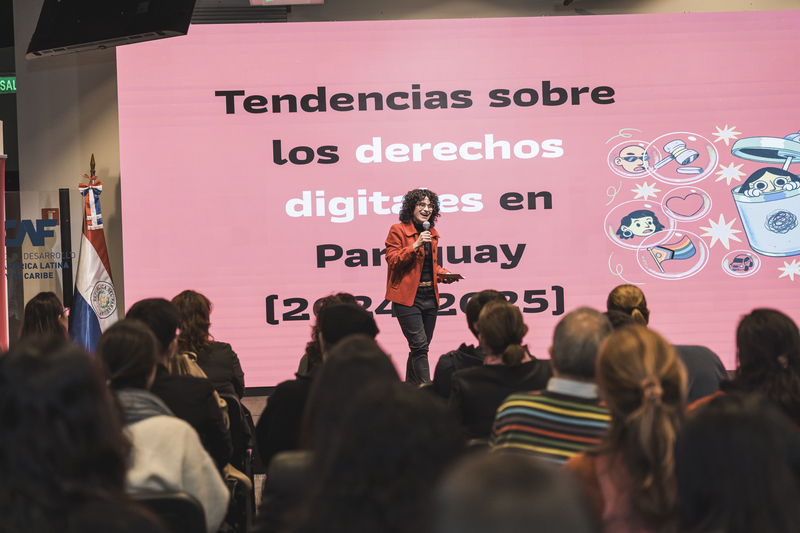
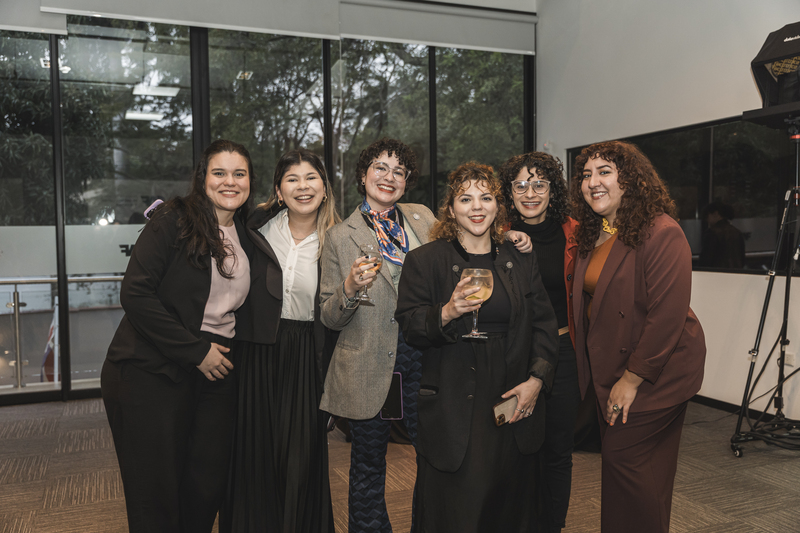
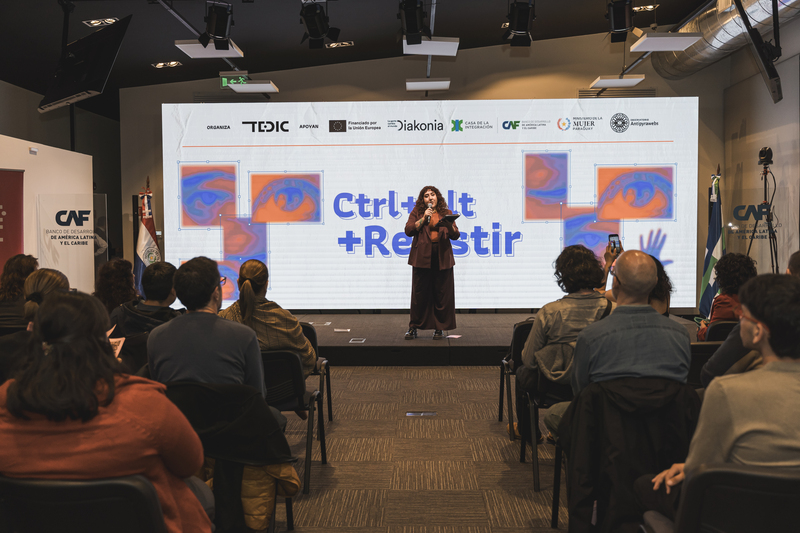
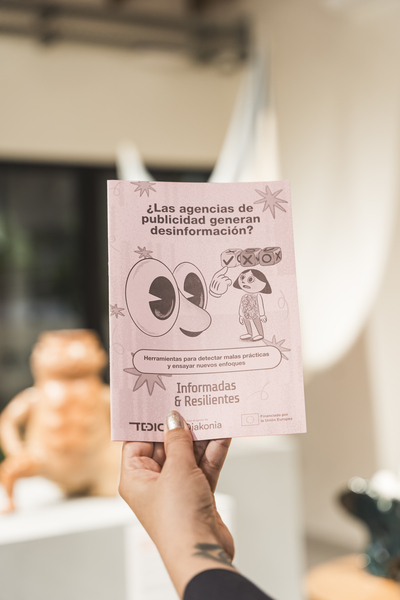
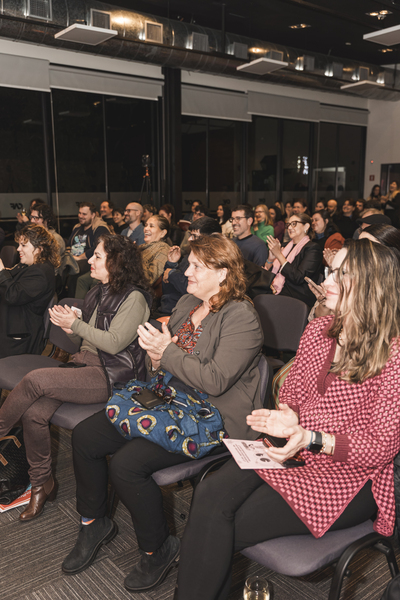
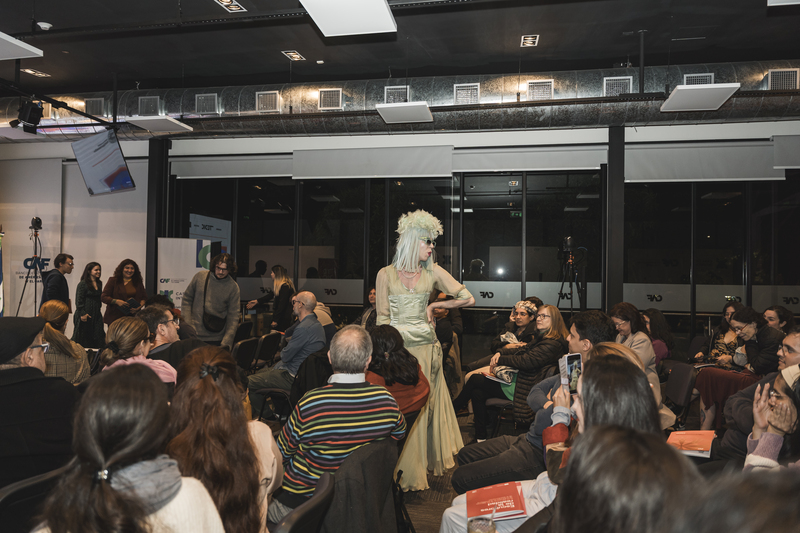
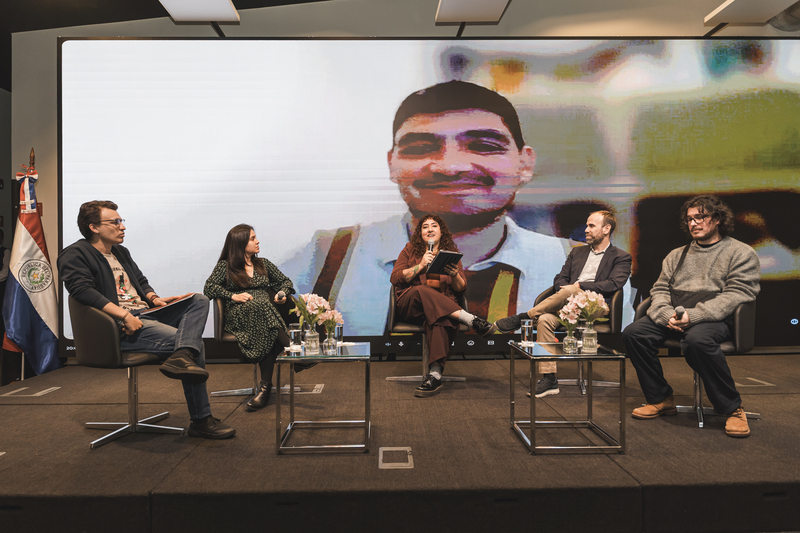
To close the evening, Giancarlo Pazzanese, a professor at Utrecht University of Applied Sciences, artist, and 3D designer, joined us virtually from Amsterdam. He was interviewed for the article Digital Fashion, Surveillance, and New Subjectivities, written by our colleague Jazmín Ruíz Díaz.
Giancarlo Pazzanese explained that as a researcher, he is interested in fashion not only as clothing or as an industry, but as an interface that can separate or connect us with the world and society. From that perspective, he began to explore inclusion in digital fashion, mainly in gaming environments.
“There’s a talk I give called Uniforms and Unicorns: there’s the uniform spectrum, which is how I want to be recognized, to appear as I am. But there’s also the unicorn spectrum, which is that we can be any body, any person, even not a human body… Between those unicorns and my faithful representation, there’s a whole spectrum of identity that we can explore,” Giancarlo shared.
At the end of the presentations, we shared canapés, wine, and drinks. To the beat of a Latin selection curated and prepared especially by the collective of sound artists Hijas de púa, we danced and enjoyed ourselves, also making space for collective pleasure and enjoyment.
We are motivated to continue producing critical and proactive knowledge, sharing and dialoguing with our community, and building proposals for possible futures where the digital rights of all people are respected. Thank you for joining us and reflecting with us!

 [Research] Technology-facilitated gender-based violence against women politicians in Paraguay
[Research] Technology-facilitated gender-based violence against women politicians in Paraguay